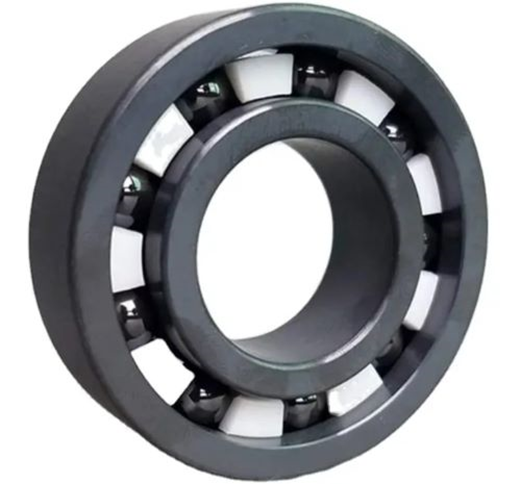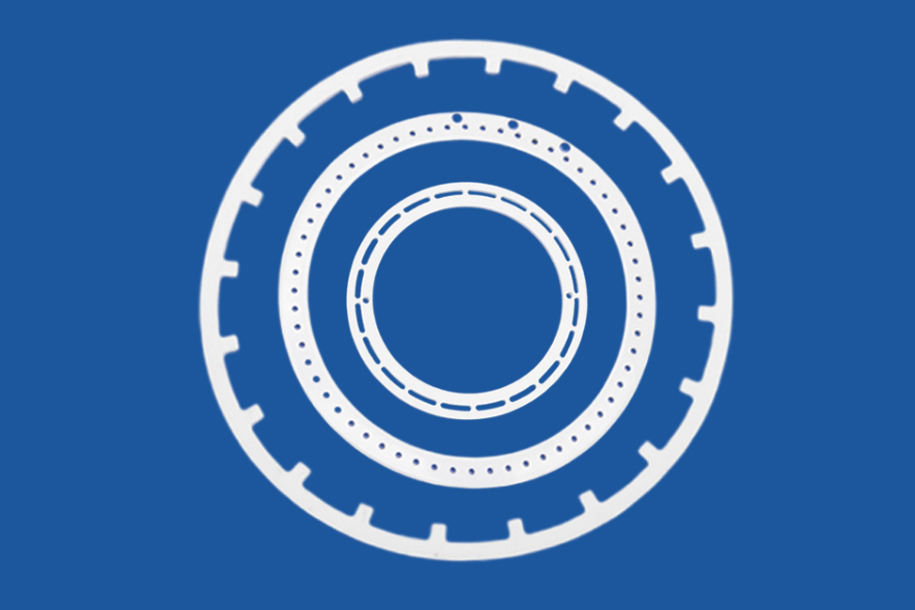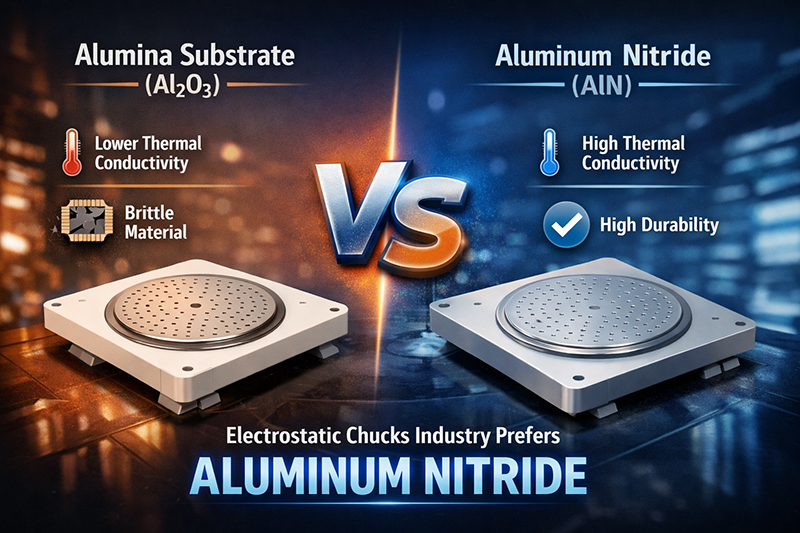Ceramic Bearings VS. Steel Bearings
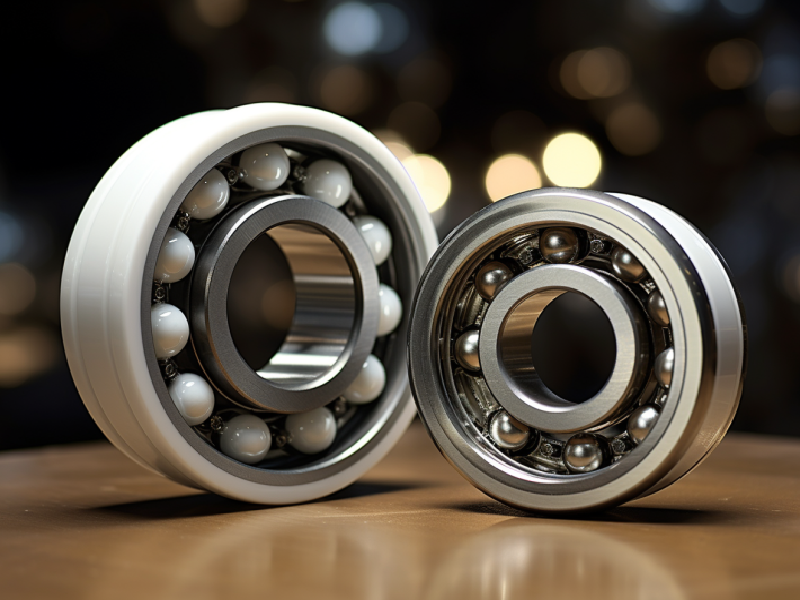
Introduction
Bearings are an essential component in many machines and devices, reducing friction, supporting loads, smoothing the motion, and increasing the moving parts' longevity. They are classified into several types, including plain bearings, roller bearings, ball bearings, fluid bearings, etc. You can also divide them into two primary types according to the raw materials: ceramic and steel.
In this article, we will explore the differences between ceramic bearings and steel bearings and their respective advantages and disadvantages. Hope that you can have a further comprehension of these materials and their features.
Ceramic Bearings
Ceramic bearings are made from advanced ceramic materials such as silicon nitride, zirconia, and alumina. These materials offer several advantages over steel bearings, including:
- High Speed: Ceramic bearings have a lower coefficient of friction and better heat dissipation, allowing them to spin faster than steel bearings. This makes them particularly suitable for high-speed applications.
- Low Electrical Conductivity: Another outstanding property of ceramic bearings is their low electrical conductivity. They are resistant to damage from arcing since they cannot conduct electricity, thus eliminating the need for special bearing insulation in traction motors.
- Chemical Stability: In terms of chemical features, ceramic bearings stand out for their superior corrosion and heat resistance and higher dimensional stability. Therefore, ceramic bearings are more durable and long-lasting than steel bearings.
- Physical Properties: Ceramic bearings are significantly lighter than their steel counterparts, reducing the overall weight of the machine and improving its efficiency. Ceramic bearings are also characterized by high hardness.
- Better Thermal Performance: Ceramic bearings can withstand higher temperatures than steel bearings, making them suitable for use in high-temperature applications. Additionally, the coefficient of thermal expansion of silicon nitride is about 25% of typical steel bearings, which leads to less change in bearing preload during spindle operation.
Silicon Carbide Bearing
Advanced Ceramic Materials (ACM) is a leading ceramic bearings supplier. Other quality ceramic materials such as zirconia (ZrO2) and alumina (Al2O3) are also available. We provide advanced ceramics at reasonable prices within a short lead time. For more information, you can check our website.
Steel Bearings
Steel bearings are made from various grades of steel, including chrome, carbon, and stainless steel. Steel bearings are the most commonly used type of bearings in industrial and consumer applications. Some advantages of steel bearings include:
- Cost: Steel bearings are generally less expensive than ceramic bearings, making them more accessible for many applications. They can be mass-produced at a lower cost, ensuring easy availability and affordability.
- Availability: Steel bearings are readily available in a wide range of sizes and styles, making them easier to source than ceramic bearings.
- Load Capacity: Steel bearings are capable of supporting heavier loads than ceramic bearings due to their higher compressive strength.
- Ease of Maintenance: Steel bearings are easier to maintain and repair than ceramic bearings, making them a more practical choice for many applications.
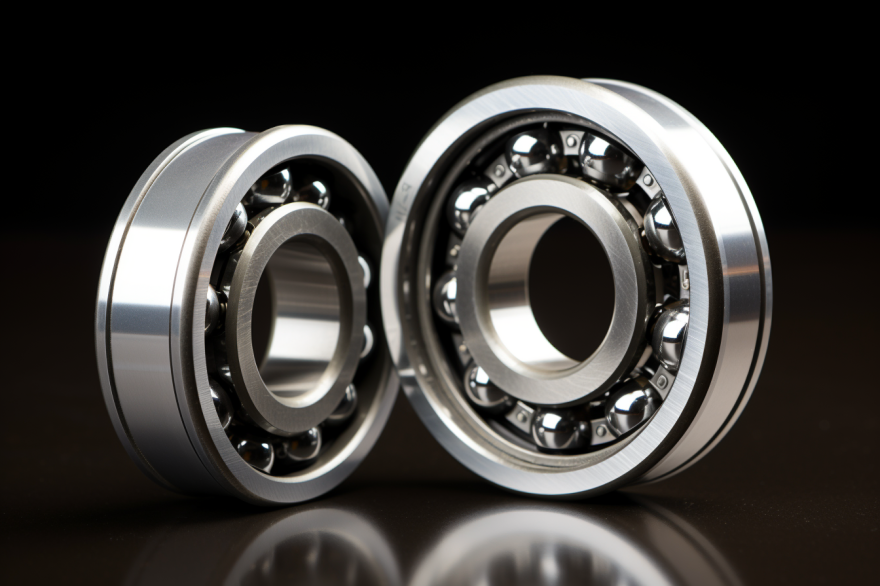
Which Is Better: Ceramic Bearings, or Steel Bearings?
Both ceramic bearings and steel bearings have many impressive characteristics. You can check Table 1 for more details.
Table 1. Properties of Ceramic Bearings & Steel Bearings
|
|
Si3N4 |
ZrO2 |
Steel |
|
Density |
3.24 g/cm3 |
6 g/cm3 |
7.8 g/cm3 |
|
Hardness, HV |
1500 |
1300 |
About 750 |
|
Young’s Module |
320 GPa |
210 GPa |
208 GPa |
|
Working temperature |
800 C |
800 C |
180 C |
|
Thermal expansion coeff. |
3.4×10-6 |
10.5 |
12.5×10-6 |
|
Thermal conductivity |
Low |
Low |
High |
|
Magnetism |
None |
None |
Yes |
|
Corrosion resistance |
Good |
Good |
Poor |
|
Wear resistance |
Excellent |
Excellent |
Good |
The choice between ceramic bearings and steel bearings ultimately depends on the specific application requirements. For applications that require high speeds, high temperatures, and longevity, ceramic bearings are the superior choice. For applications that require heavy load capacity and ease of maintenance, steel bearings are generally the better choice. Check Table 2 to see a clearer comparison between these two types of bearings.
Table 2. Comparison between Ceramic Bearings and Steel Bearings
|
|
Ceramic Bearings |
Steel Bearings |
|
Primary Feature |
Advanced bearing materials; |
The most common; |
|
Types |
Silicon nitride, zirconia, and alumina; |
Chrome steel, carbon steel, and stainless steel; |
|
Benefits |
High speed; Low electrical conductivity; Corrosion resistance; High hardness; Better thermal performance; |
Less cost; Availability; Load capacity; Ease of maintenance; |
Conclusion
In a word, ceramic bearings and steel bearings both have their advantages and disadvantages, and the choice between the two depends on the specific application requirements. Ceramic bearings offer superior speed, low electrical conductivity, corrosion resistance, and high-temperature tolerance. Steel bearings, on the other hand, are generally less expensive, easier to source, have higher load capacity, and are easier to maintain. By considering the specific application requirements, one can make an informed decision on which type of bearing to use. Advanced Ceramic Materials (ACM) provides high-quality ceramic bearings and steel bearings. Send us an inquiry if you are interested.
{{item.content}}
LEVE A REPLY
{{item.children[0].content}}
{{item.content}}
LEAVE A REPLY
SUBSCRIBE OUR NEWSLETTER
- How PBN Crucibles Ensure the Quality of GaN & SiC Epitaxial Materials
- SiC vs. Quartz Focus Rings: A Cost and Performance Analysis for Advanced Etch
- AlN Ceramic Substrates: Enabling Next-Gen Electrostatic Chucks
- The Amor of Semiconductor Tools: Why High-Purity Al2O3 & AlN Are Preferred for Plasma Process Chambers
- Silicon Carbide - Ultra-High Temperature Ceramics for Extreme Environments









